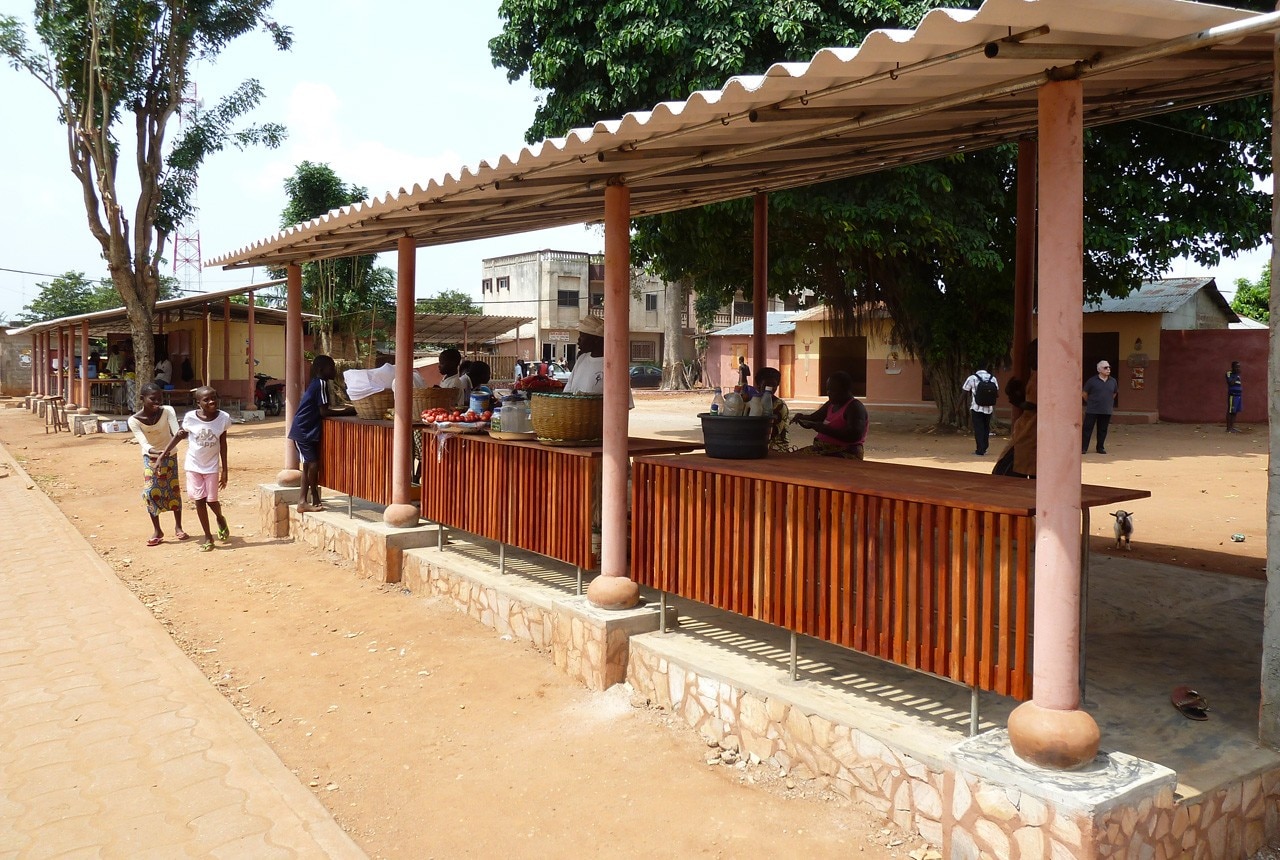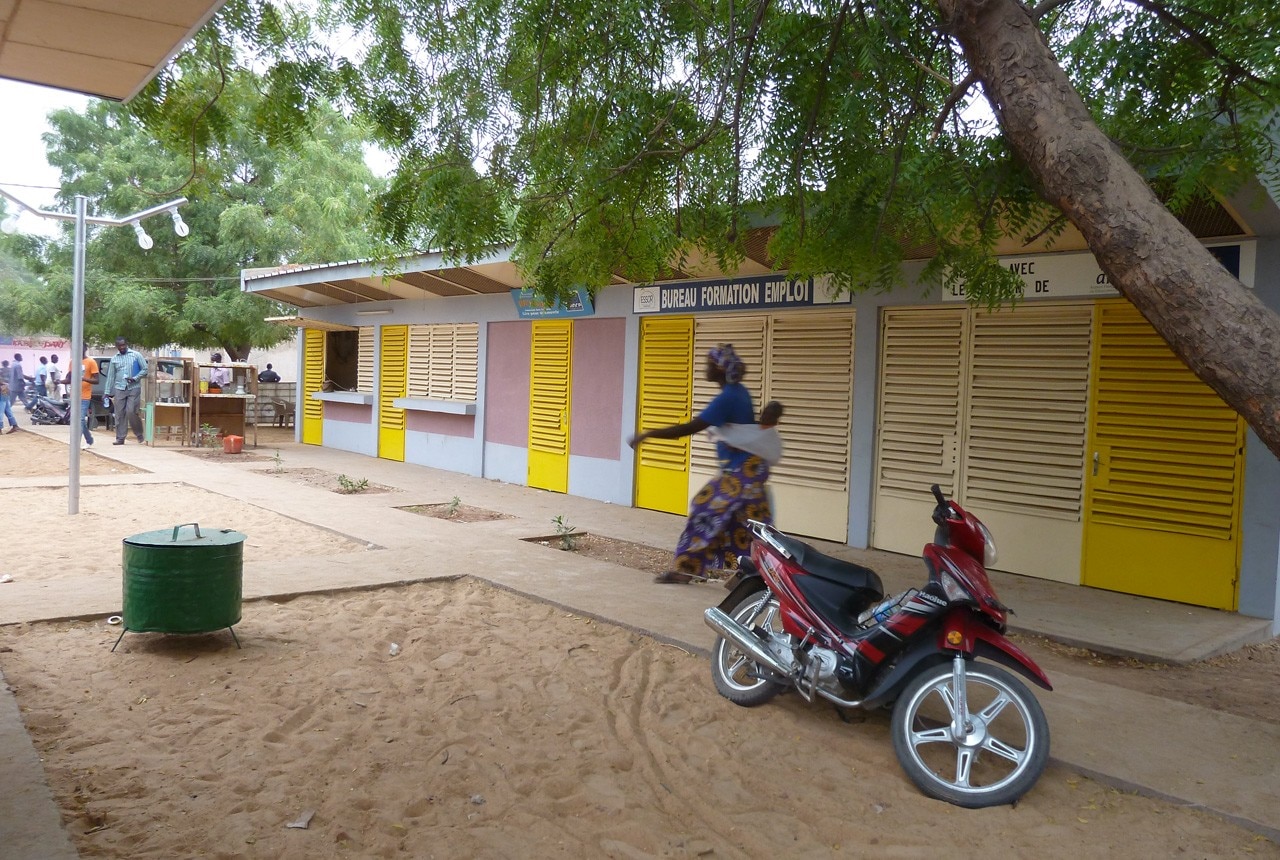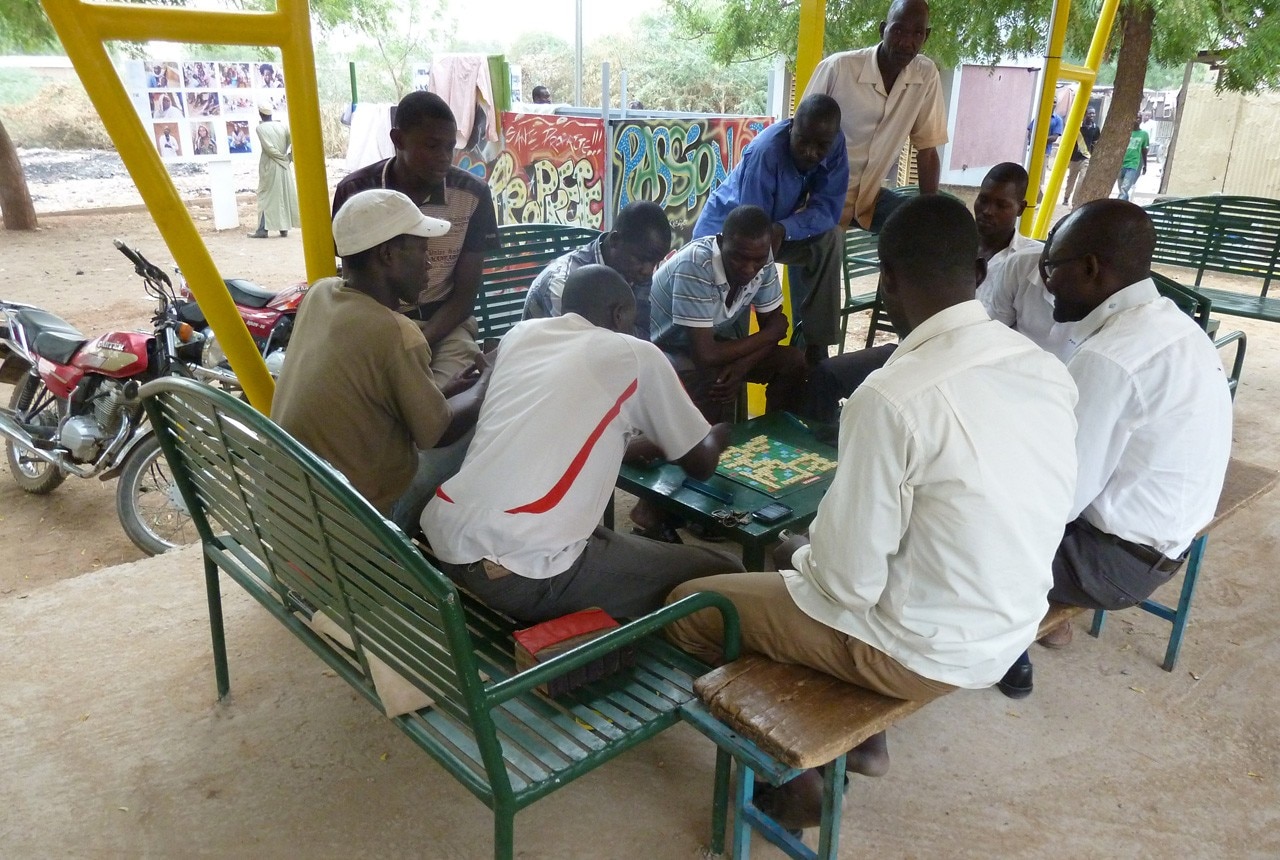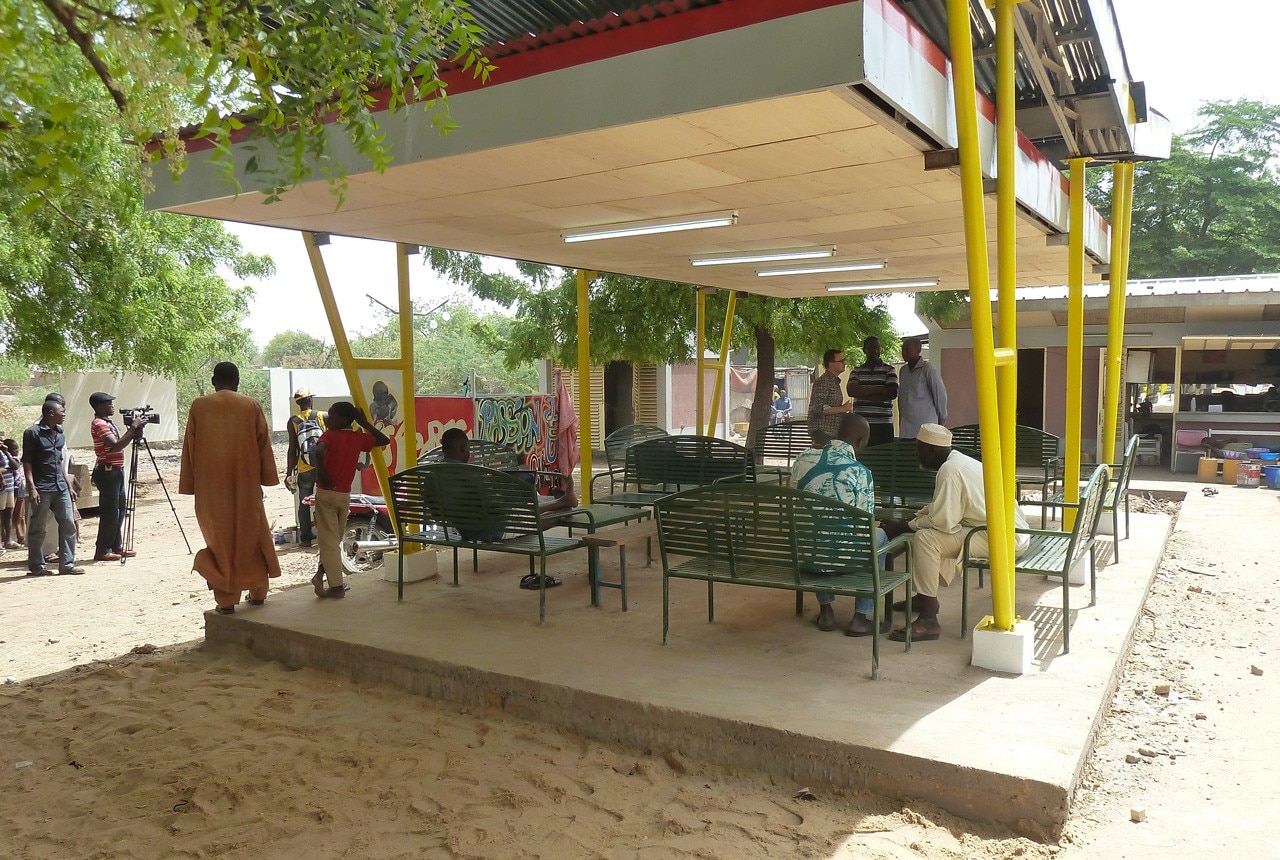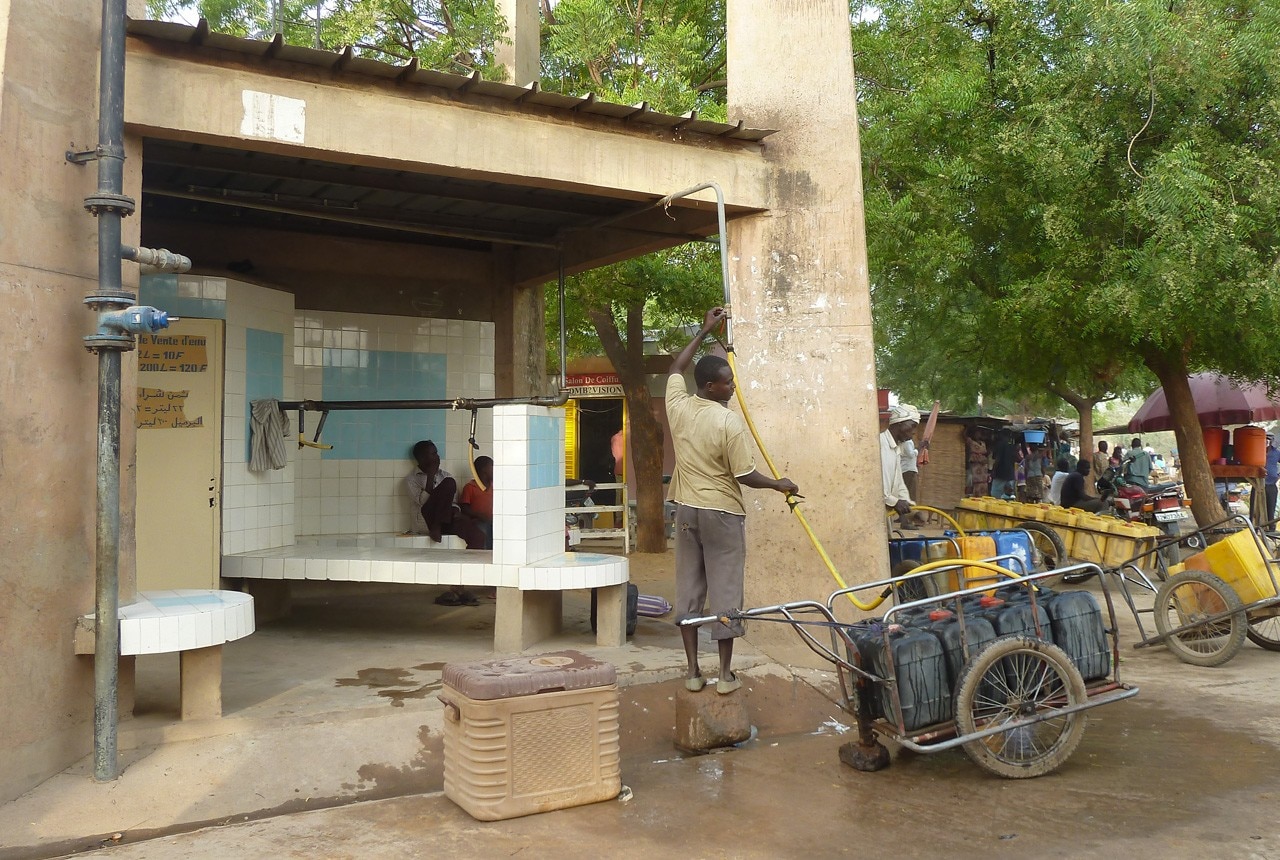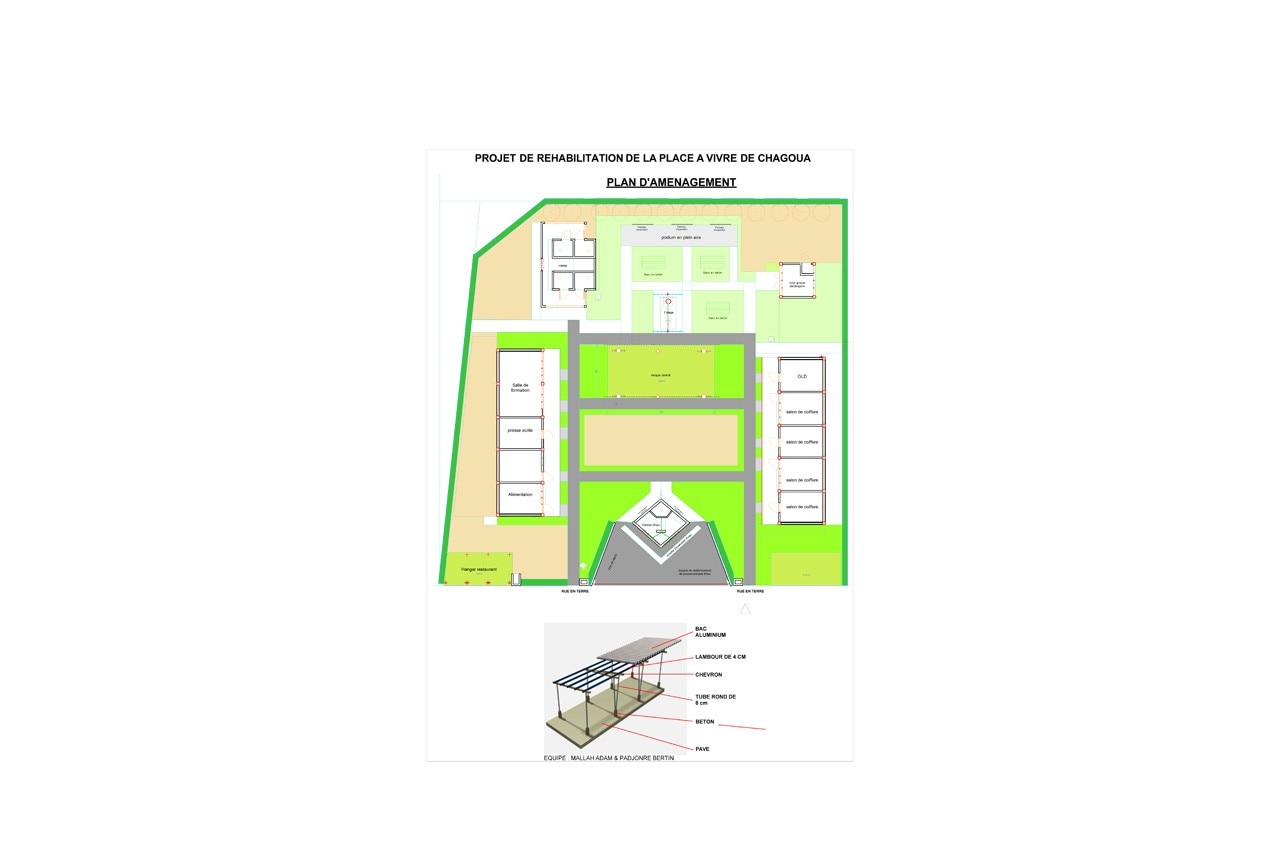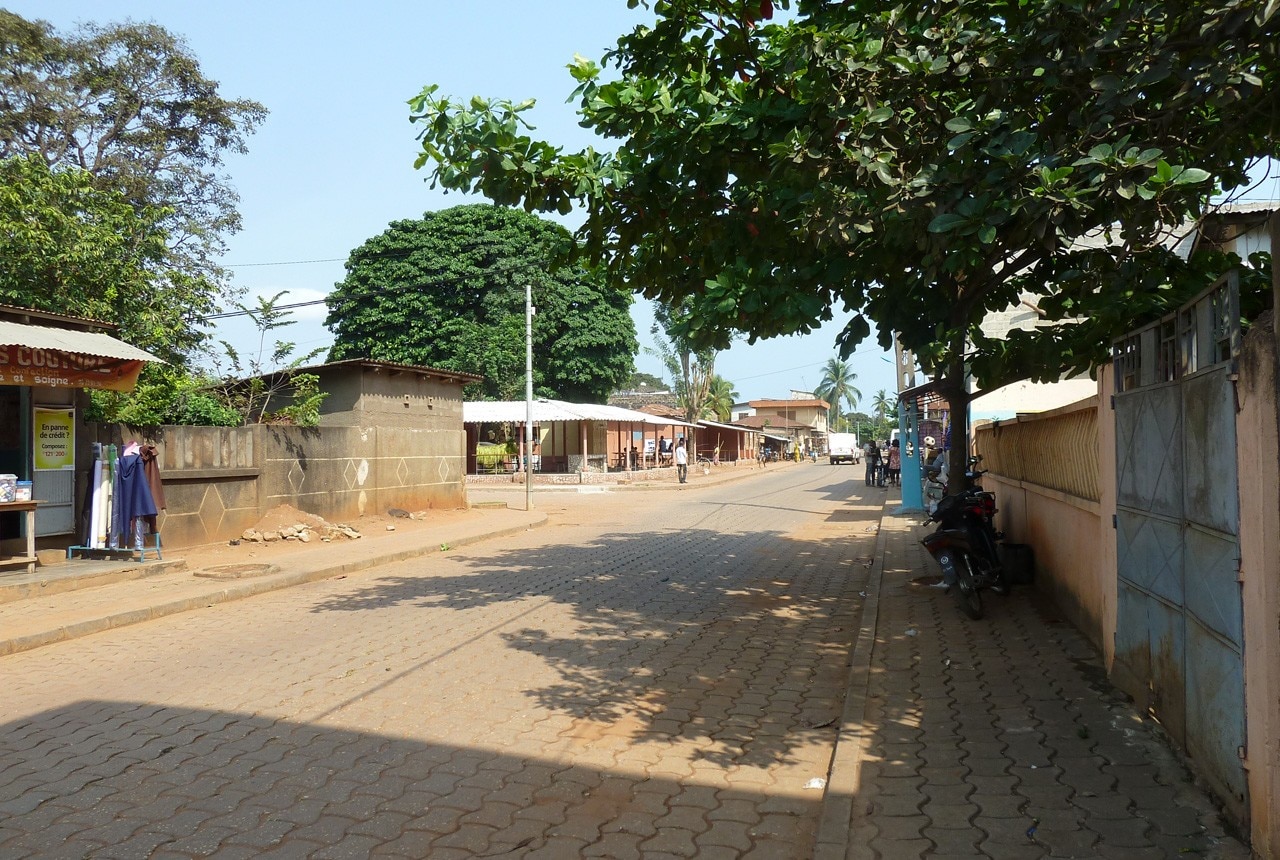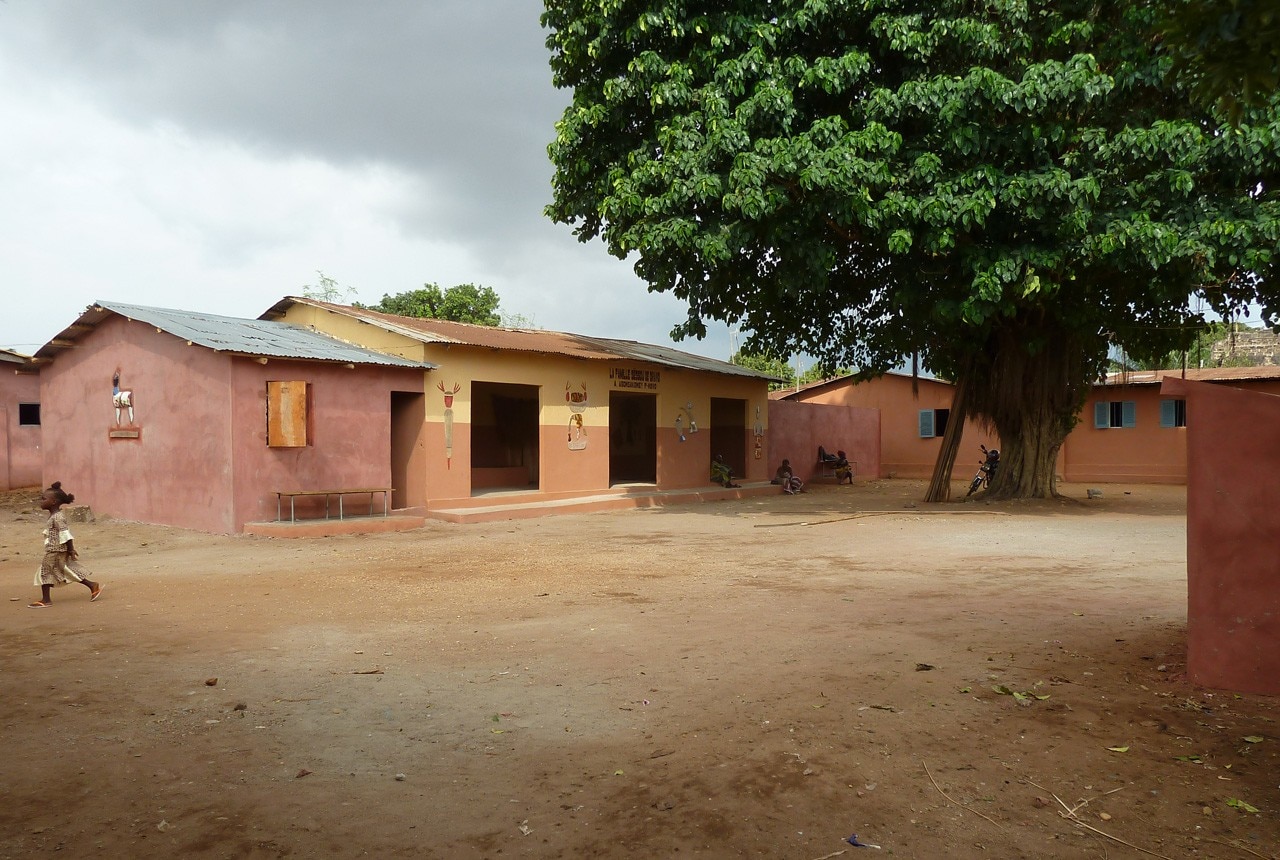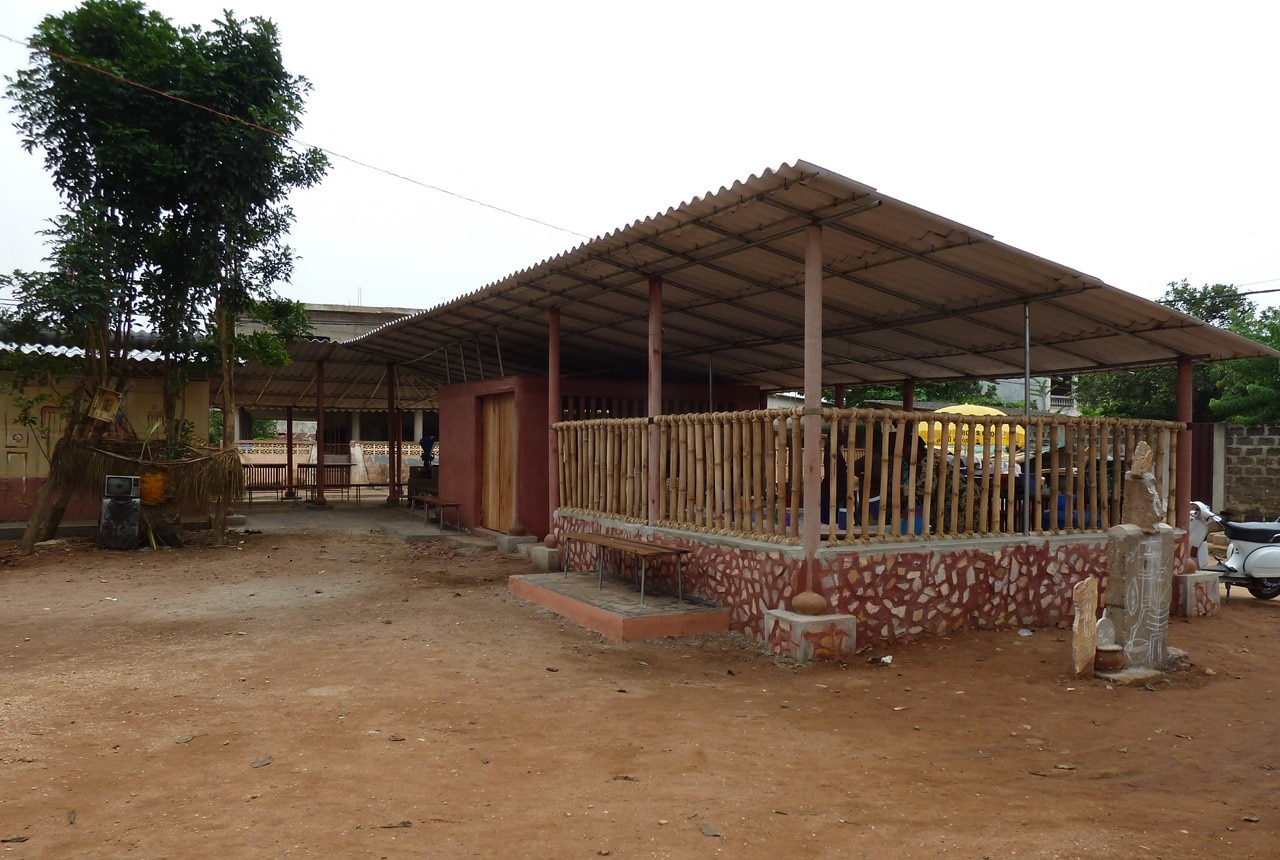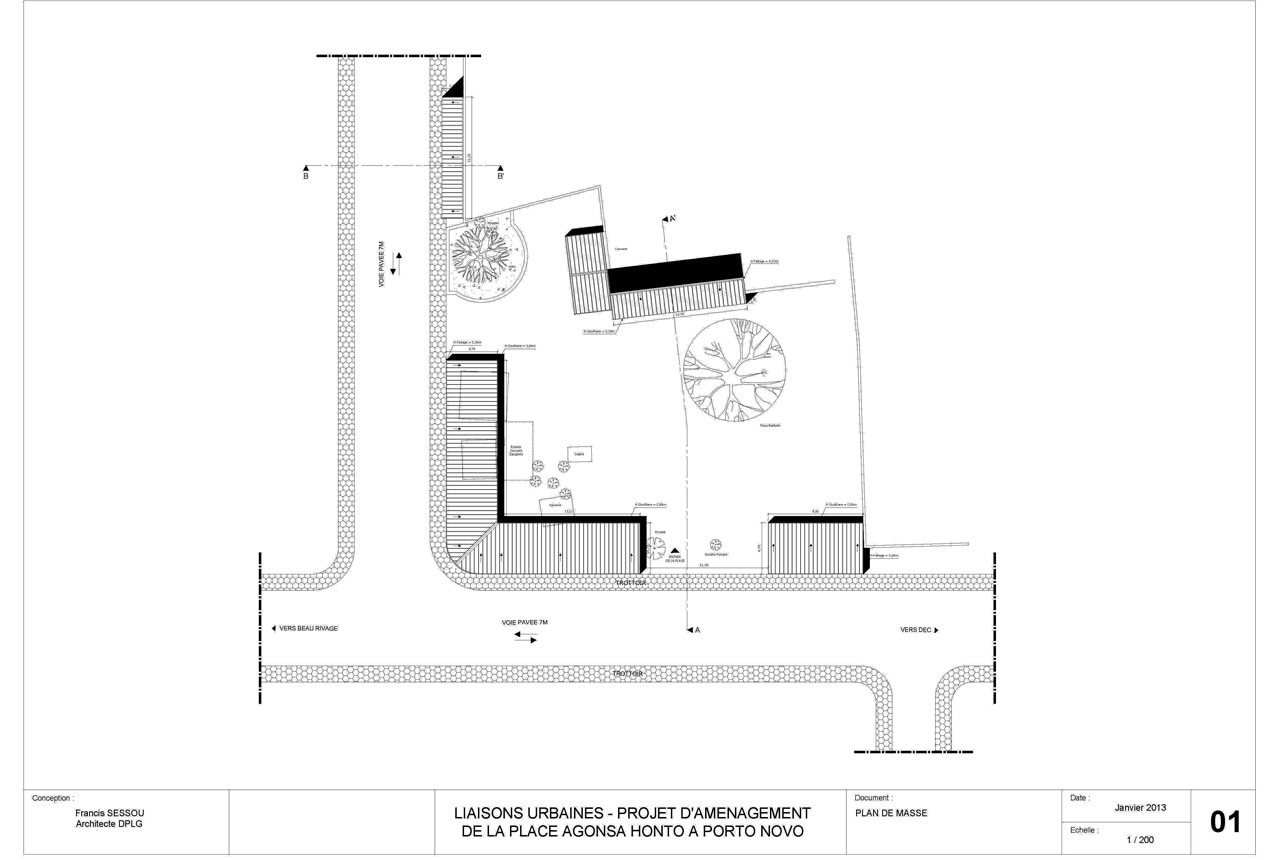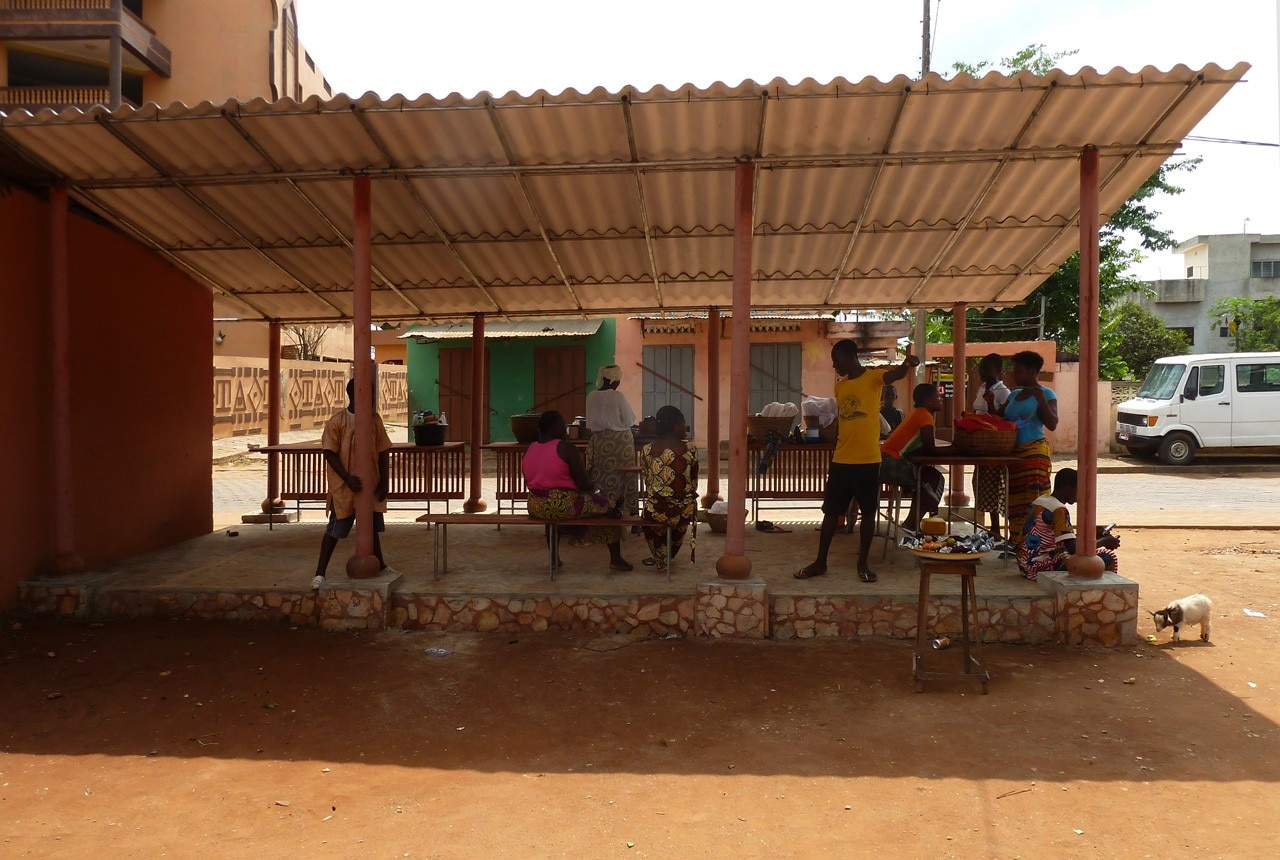
In parallel with redevelopment of spaces, the programme commissions photographers and filmmakers to express their artistic vision on the themes being explored. For instance, Ishola Akpo produced a photographic series on street food in Porto-Novo and Abdoulaye Barry created a photographic study of water distribution in Ndjamena.
The programme also involves local researchers, who shed light on the social issues at stake in the spaces where we work and how users take ownership of projects during their development and after their completion.
The aim of Liaisons urbaines is to use the innovative capacity of African civil societies in the development of urban space by connecting it to various creative disciplines: furniture design, architecture, landscape architecture and visual arts.
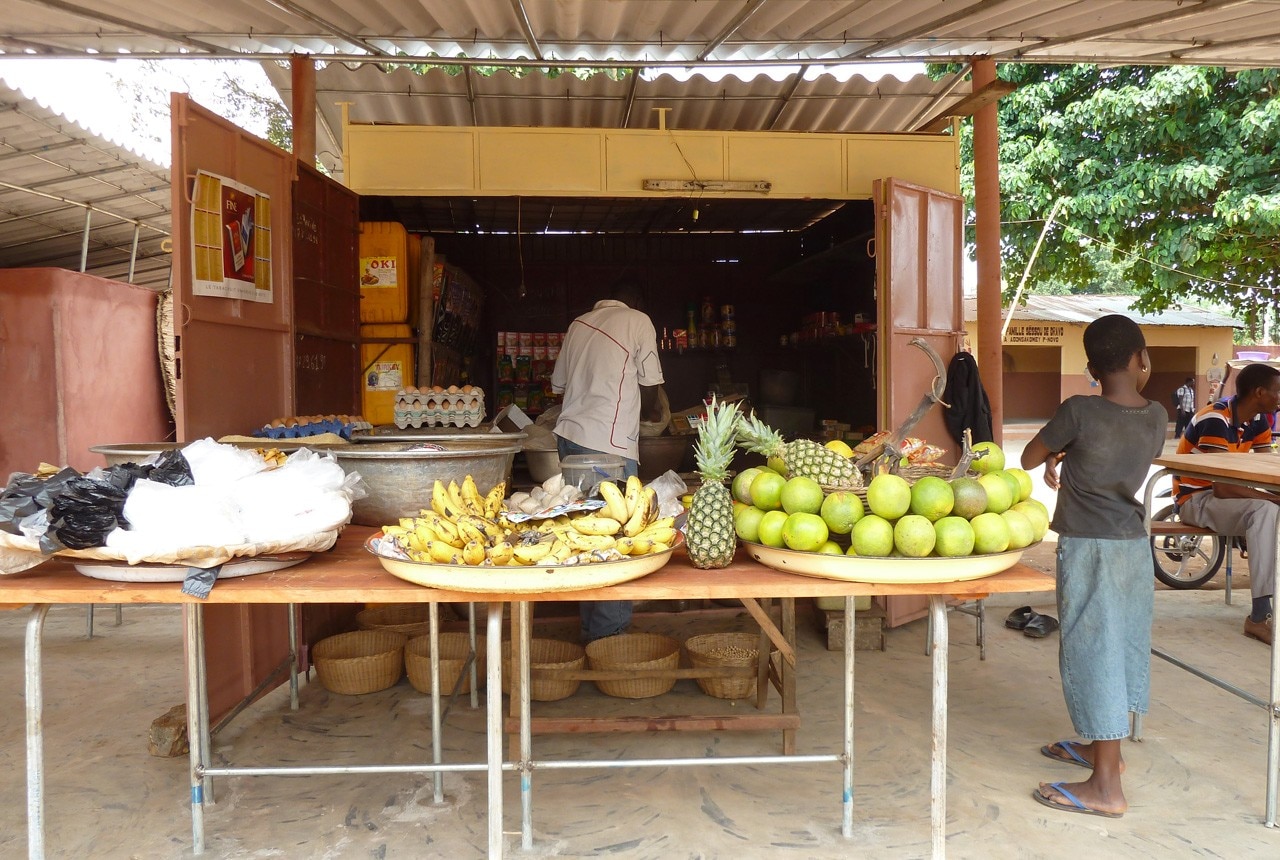
In 2012 and 2013, Agonsa Honto voodoo square was redevelop in the framework of Liaisons urbaines, thanks to an intervention based on community participation in association with cultural operators and creators. The 1,000 m2 square is located in a public space but is managed by a family community. Despite being dedicated to Vodoun practices, its peripheral spaces are used for street food activities, attracting customers from the whole community. It can be said that the square links spiritual and physical food.
The purpose of the intervention was to enhance the visual quality of this urban space and to improve functionality and comfort, while respecting its uses and identity. It is within this renewed physical setting that the square will continue its long history.
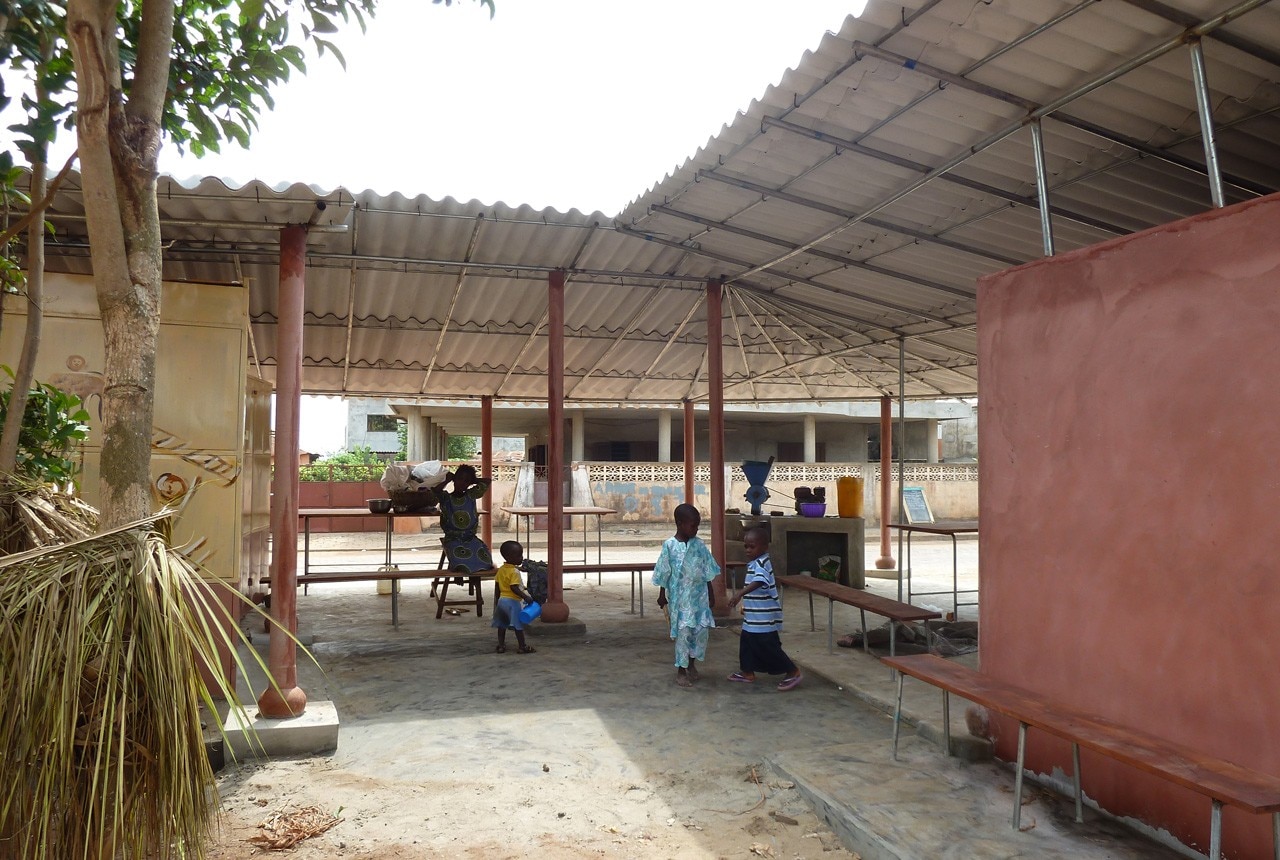
The capital of Chad, located in the Sahelian zone, is experiencing rapid urban expansion. It extends over 100 km2 and has about one million inhabitants spread over 10 districts and 64 neighbourhoods. Running water and sanitation structures still serve primarily the central districts.
In 2013-2014, the second stage of Liaisons urbaines took place, focusing on the issue of water distribution in the city. The location chosen for this intervention was a square where varied activities are organized around a water tower in the popular neighbourhood of Chagoua.
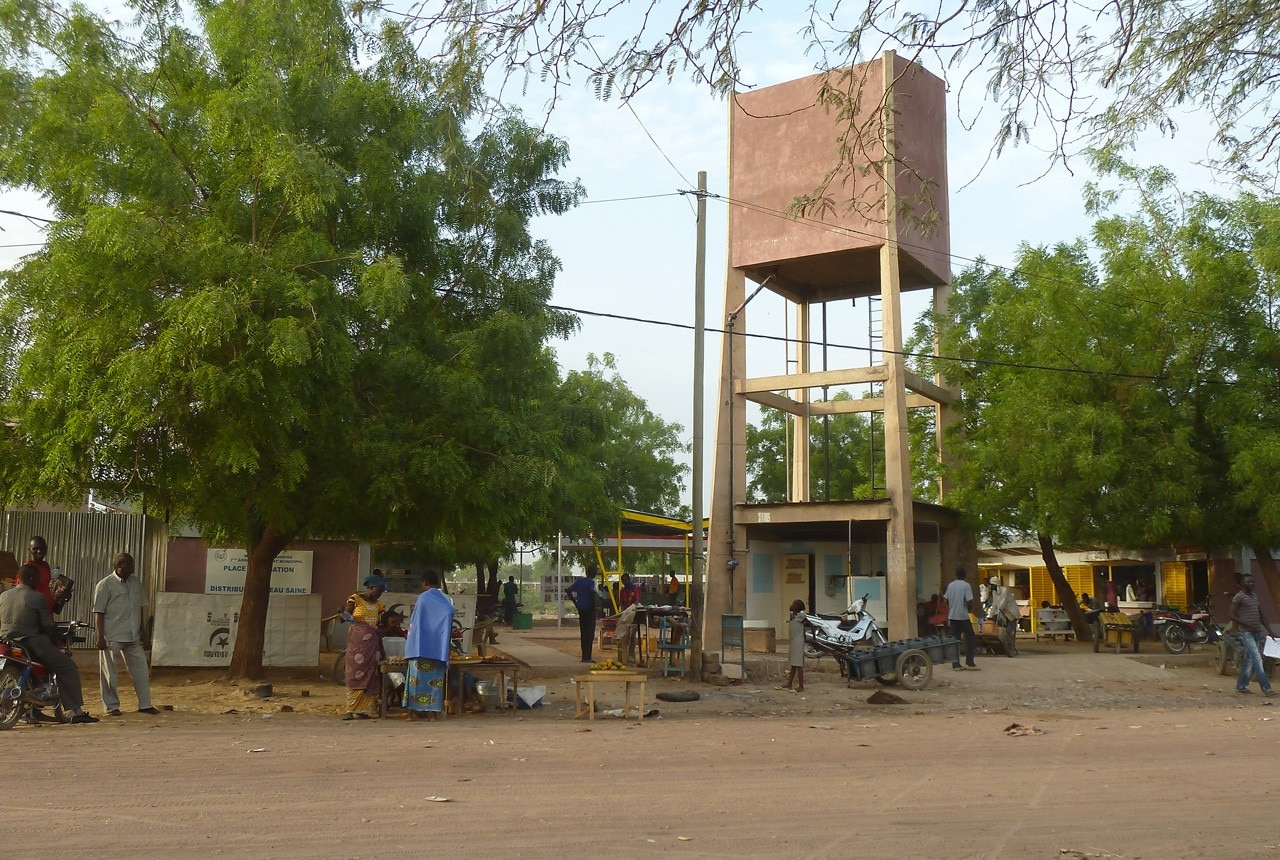
This square was developed under a program to create neighbourhood amenities led by the Government of Chad, implemented by the City of Ndjamena and funded by the AFD (Agence française de développement), which has created a hundred drinking water points (fountains and water kiosks) serving more than 300,000 people living in the suburbs.
Following an open consultation of designers, Liaisons urbaines selected a young team of architects and urban planners supervised by an experienced artist and builder. In association with the users and managers of the space, the project is intended to improve the functionality and visual character of the site.
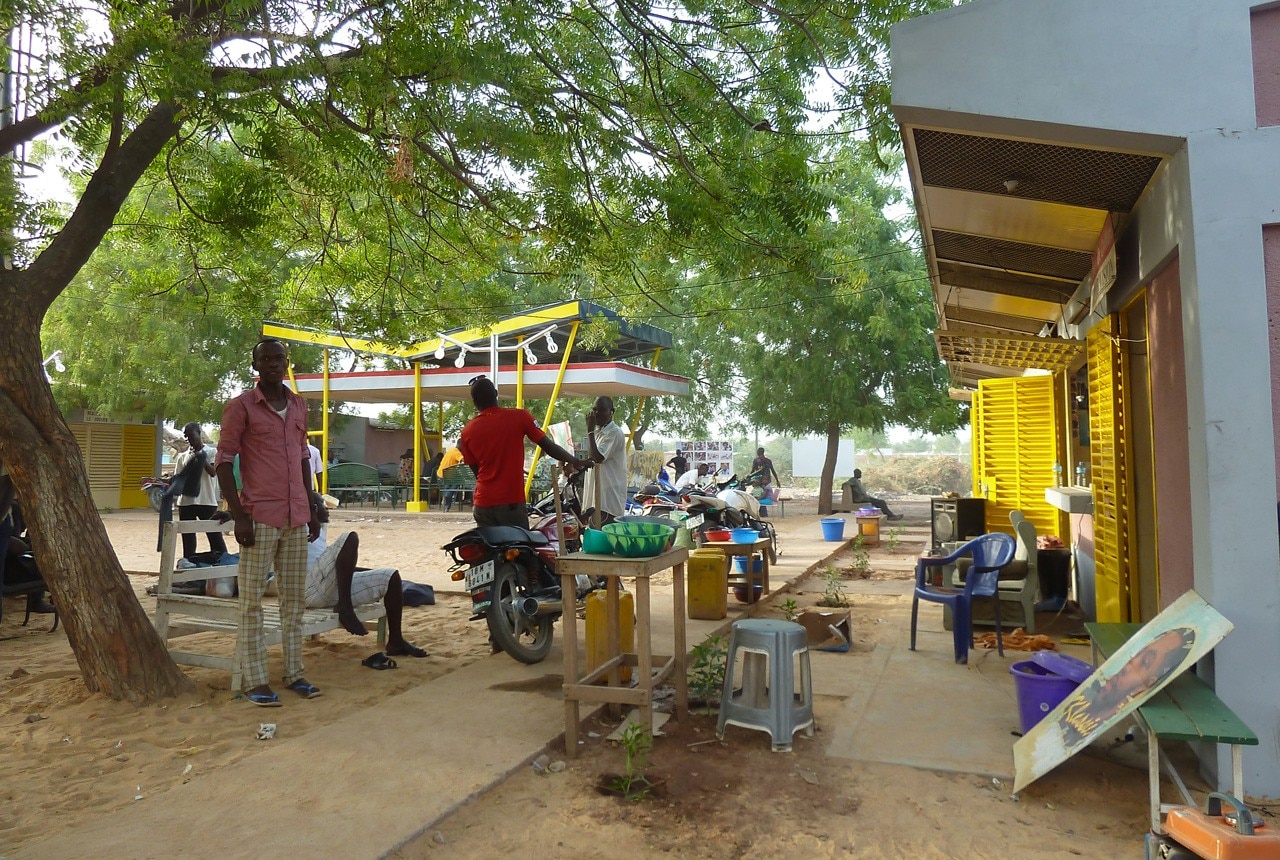
Liaisons Urbaines
Program management: Franck Houndégla – Artistic director; Valérie Lesbros – Institut Français, Afrique et Caraïbes en créations, Paris; Baba Keita – Director of EPA - School of African Heritage; Fiona Meadows – Cité de l’architecture et du patrimoine; Michel Bouisson – VIA - Valorisation de l’Innovation dans l’Ameublement
Porto-Novo, Benin, 2012–13
Local Project Management: EPA – School of African Heritage
Artistic and technical coordination: Gérard Bassalé, director of the Cultural Center Ouadada
Designers: Theodore Dakpogan, sculptor; François Abléfonlin, painter; Francis Sessou, architect
Local and international partners: City of Porto-Novo, Cultural Centre Ouadada, Ambassade de France au Bénin, Institut Français du Bénin
Ndjamena, Chad, 2013–14
Local Project Management: Institut français du Tchad
Artistic and technical coordination: Abdelkader Badoui, artist and builder
Designers: Malloum Hissein Mallah Adam and Bertin Fali Padjonré, architects and planners
Local and international partners: City of Ndjamena; GLD – Groupe local de développement de Chagoua; AFD – Agence française de développement


